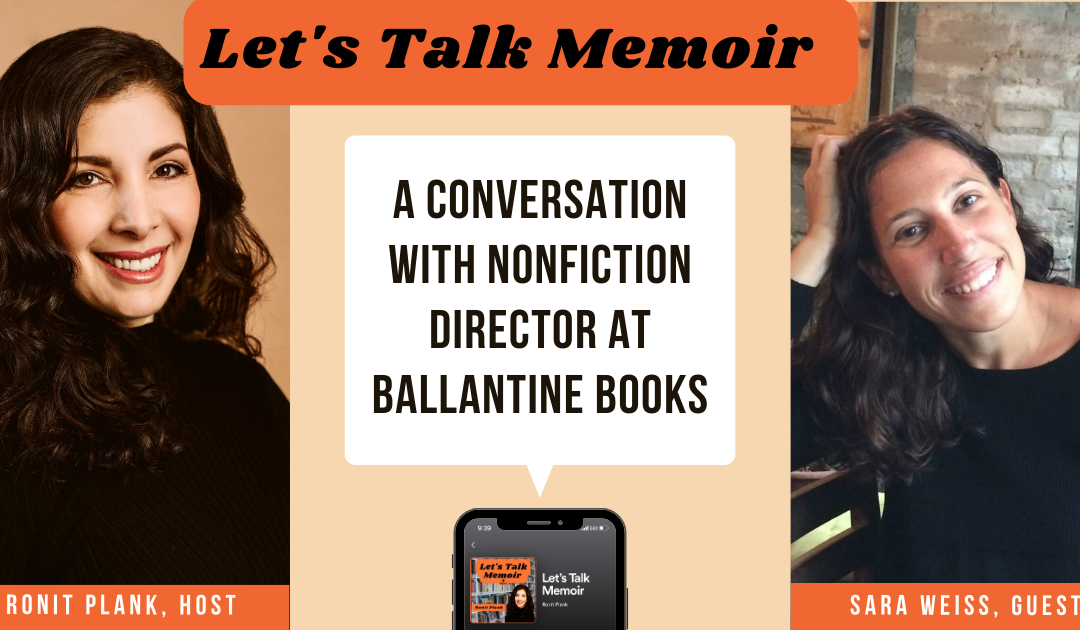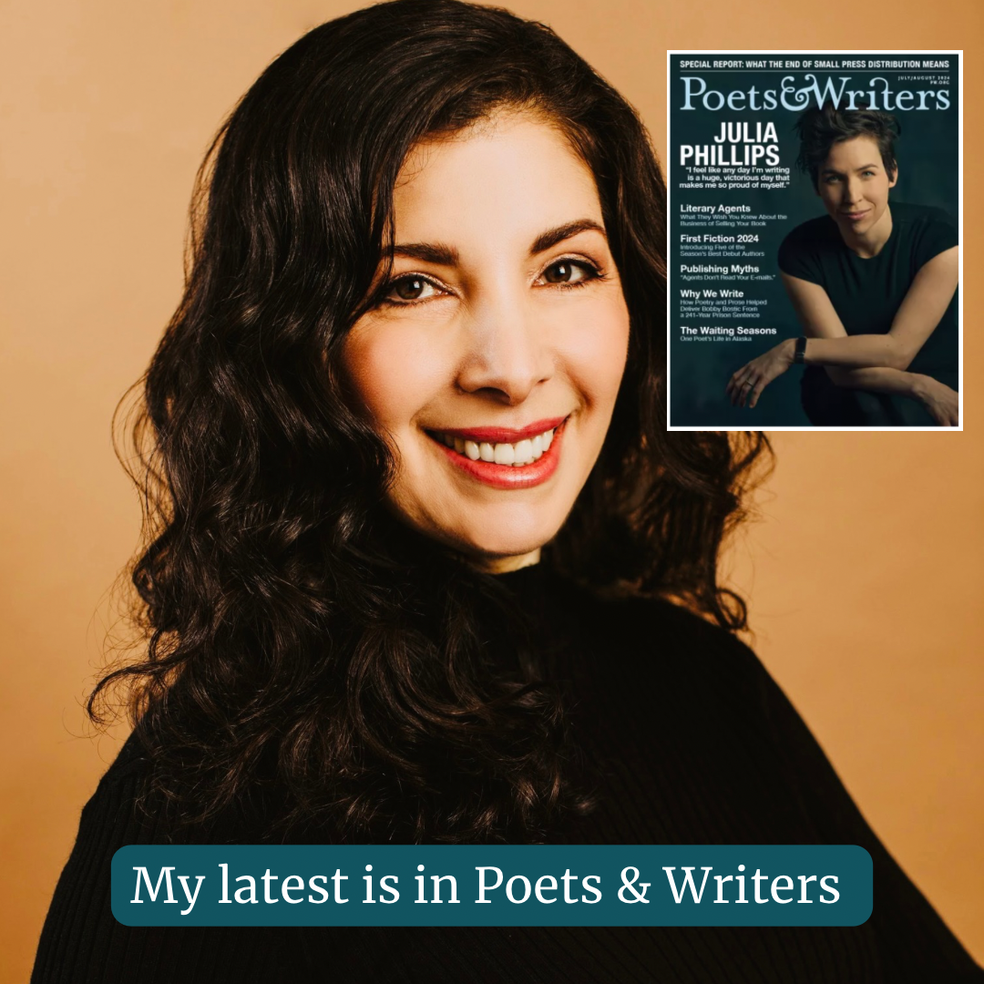
I’m happy to be able to share my latest article out now in the print version of Poets & Writers: Set Your Pitch Apart: Getting Indie Bookstores to Say Yes to Your Book Event. I got to talk with booksellers and event managers at Pagination Bookstore in St. Louis, The Golden Notebook in Woodstock, and Third Place Books in Seattle about their recommendations and preferences for authors hoping to connect with them about book launches.
In this article I share ways to improve your chances of making it through their busy inboxes and that it is really okay to follow up. In fact, writing this article helped me see just how important it is that we advocate for our work and, for good measure, advocate a little more.
Yes to the Nudge
I’m writing to you about nudges because I’m a big believer in them though I used to fret about being too nudge-y.
Nudge:
noun 1) – the act of pushing someone or something gently
noun 2) – one who pesters and annoys with persistent complaining (Yiddish, also spelled noodge)
A nudge is that feeling inside that awakens you to what you want, the hunch that you are on the right path, the feeling in your gut that is more powerful than your equivocating, imposter-syndrome brain. There’s also the Yiddish nudge which is a person who can be a little pushy or persistent about their needs. I was once afraid of being a nudge. I was so frozen by a fear of rejection I told myself that if my work was good enough it would speak for itself without any extra legwork on my part. I worried that people, literary magazines, and editors, would see insecurity dripping off me if I emailed again or followed up.
What I’ve learned? When it comes to editors and those you need to get an answer from, you must be a nudge. Event managers, agents, editors, and publishers are so busy and swamped with emails that even if they are intrigued by your project they may not have the bandwidth to get in touch with you as soon as they’d like. So, if a bit of time has passed and you haven’t heard from a contact about your proposal/project/pitch, listen to your inner nudge and follow up. Reaching out once or even twice after your initial pitch does not make you a nudge. It makes you a smart and proactive writer and champion of your hard work.
For more, pick up a copy of the July/August issue of Poets and Writers.
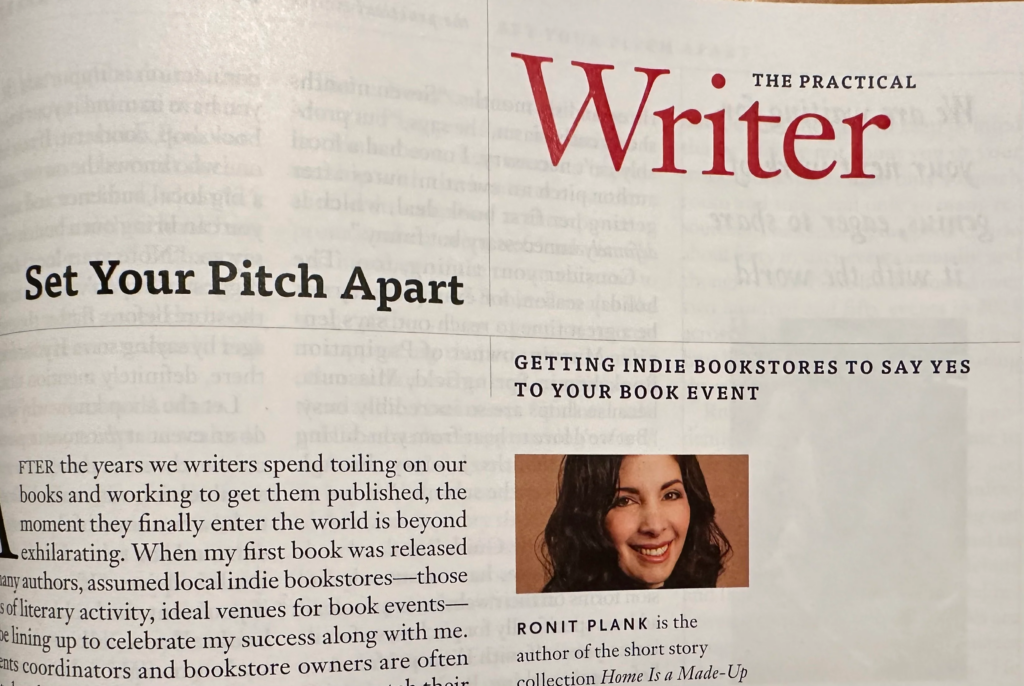
Speaking of Imposter Syndrome
This Tuesday, 6/25 on Let’s Talk Memoir my guest is Deesha Dyer, who worked in the Obama administration and talks about how she grappled with imposter syndrome even as she rose through the ranks, how her identity as a Black woman has been weaponized in the workplace, engaging her inner child to heal, how being yourself takes a while, and her new memoir Undiplomatic: How My Attitude Created the Best Kind of Trouble. Listen to Let’s Talk Memoir on your favorite podcast platform, new episodes drop every Tuesday.
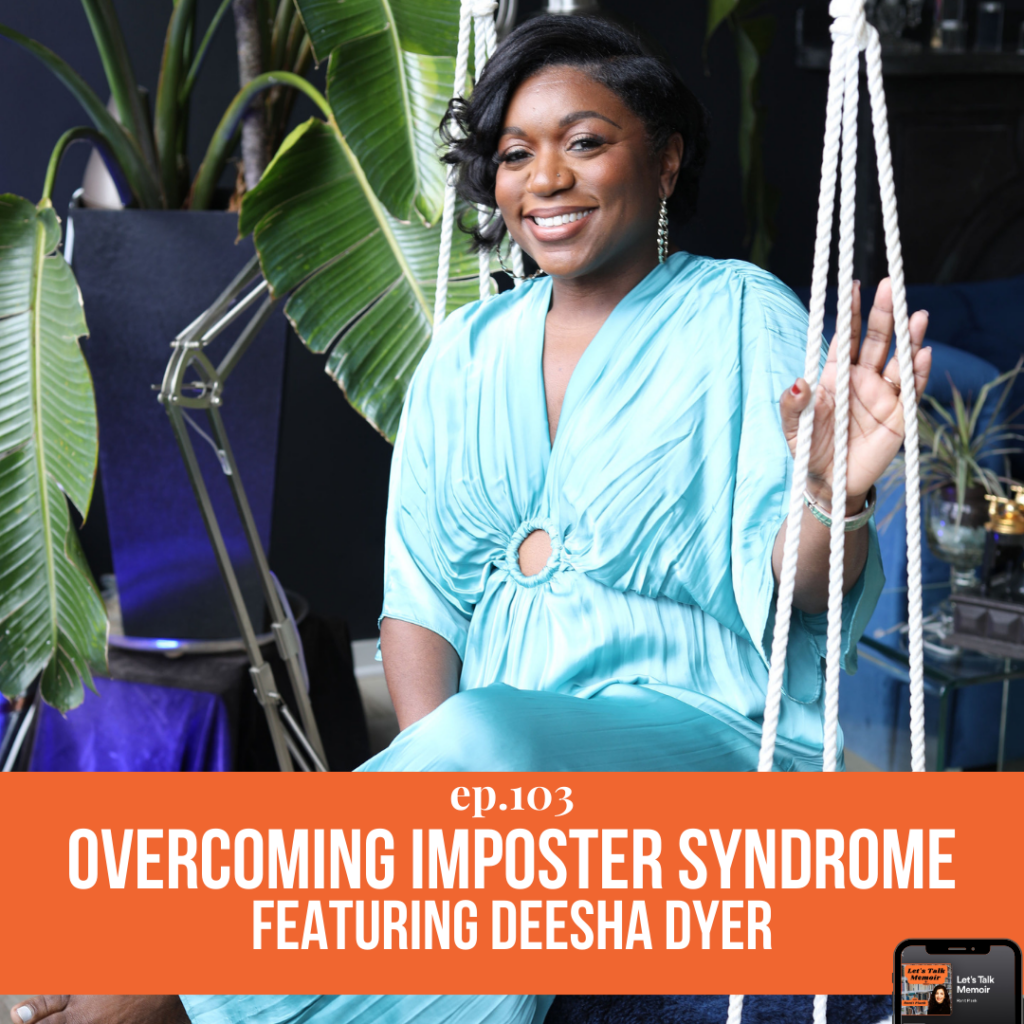
Memoir Ask-Me-Anything with Hannah Sward, Tuesday 5/25T
This Tuesday 6/25, you are invited!
Join me and Hannah Sward for a free virtual Memoir Ask-Me-Anything at 12PM PT/3PM ET. We’ll begin the hour discussing writing about addiction and recovery and Hannah’s memoir STRIP, and then answer your memoir writing and publishing questions.
Hannah Sward, daughter of the late poet Robert Sward, is the IAN awarding-winning author of Strip: A Memoir. Strip, Swards first book, has received the attention of authors such as Nobel Prize winner, J.M. Coetzee, Melissa Broder, and NYT Bestselling novelist Caroline Leavitt who called Sward, “One of the most moving and honest memoir writers. So eloquent, so brave.” Sward has appeared on NBC CA Live, C-SPAN BookTV, dozens of podcasts, panels, and in magazines and newspapers such as the LA Times and Recovery Today. Sward lives in Los Angeles where she coaches writers and is working on her next book. To find out more hannahsward.com
To reserve your Ask-Me-Anything spot, register HERE.
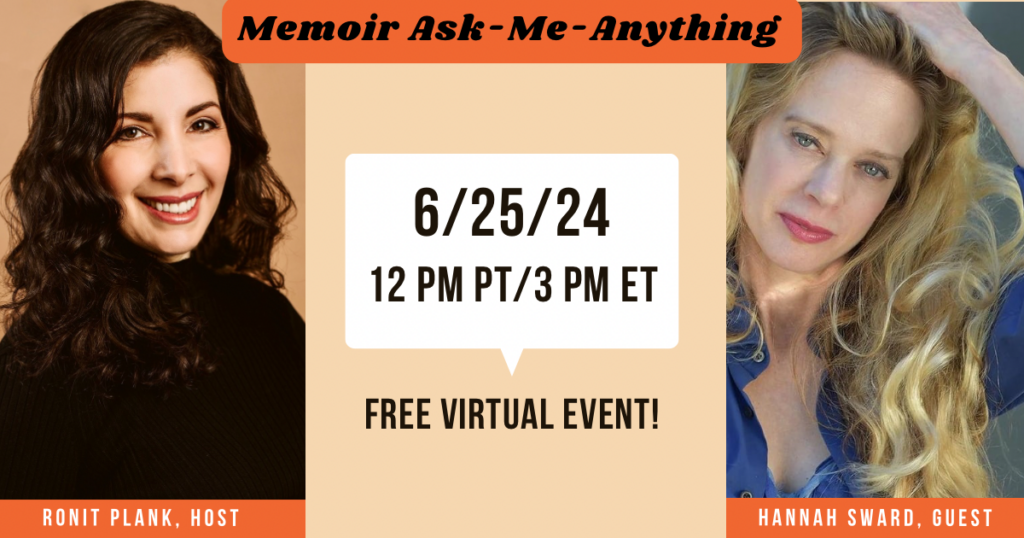
Your Questions Answered
The question I’m answering in this post is about publishing and comes from Lora Arbrador whose Substack is Art Blotter Plus:
“I notice that most of your guests on “Let’s Talk Memoir” are traditionally published. Would you recommend that? I seem to be OK getting my own editor, copyeditor, proofreader, indexer and book cover and interior designer. Am I missing out by not going trad? Since I’m not Michelle Obama I’d be looking at small independent publishers (not hybrid) but I’m hesitant to sell the rights to any publisher.”
Thank you for this excellent and important question, Lora.
The answer is complex and truly depends on your goals.
In general, traditional publishing means you get a deal with one of the “big five” publishing houses. You get an advance and you must make up your advance in book sales until you begin to turn a profit with your royalties.
In order to get your book in front of a traditional publishing house you need to secure an agent which requires querying with a query letter and often, with nonfiction titles, a proposal. Once you get an agent (which is in an of itself often a feat), the agent puts your project on submission whereby they query/[pitch publishing houses on your behalf.
In my experience traditional publishing is where the bigger money is, where there is more inherent exposure for an author, and where books can go to auction and sometimes fetch big advances. Indie publishers are often smaller operations and provide on their websites submission information, what they are looking for in new projects, and links for authors to self-submit their manuscripts and proposals. Indie publishers often don’t require agent representation, give you an advance, and they too can get your book in front of an audience.
To my mind, the main differences between traditional and indie, un-agented publishing houses are:
-the advance amount for your book
-that you don’t need to pay out an agent from your proceeds (though agents do also work with indie presses)
-if you don’t yet have an agent, less time from querying to book deal
When I began querying my memoir When She Comes Back I got some requests for fulls (the full manuscript) and waited for a while to hear. By about 6-7 months into the process I realized that if I held out for a traditional press I’d be looking at years. Between securing an agent who believed in my project, that agent finding a home for the book, and then getting into the queue at the press, it could be a while.
I felt my memoir was especially relevant at the time because the guru my mother left our family for was in the news and the subject of a Netflix docuseries, and I knew I had to strike while the iron was hot. Also, I felt I’d been working on and crafting this story for so long, I was really ready to get a deal and release it into the world. So I submitted to indie presses and was thrilled when Motina Books was interested and then published my memoir.
What I have learned and you’ve probably also heard on Let’s Talk Memoir is that no matter who publishes your book, you must hustle to get publicity. Even if you hire a PR firm to help you, you will still want to reach out to bookstores you love, organizations who would appreciate you being a guest speaker, press contacts you might have, and think about writing companion pieces for exposure.
Regarding your being “hesitant to sell the rights to any publisher”, self-publishing might make the most sense to you. There are lots of companies that can help you get your manuscript edited and formatted and even print it for you through their channels. You would pay an upfront fee to secure their services, and the rights would belong to you, and so would the proceeds. You can also self-publish completely on your own without the help of a company like this. This is a good option if you want to keep your investment low, enjoy the legwork of getting your book ready for print, and are comfortable navigating publishing programs.
Now, back to how I began this section: the choice you make depends on your goals.
If you have lots of time and patience and a dream of scoring a big deal, go traditional. Especially if you’ve wanted to get an agent and experience publishing the old-fashioned way.
If you feel antsy to see your book in the world and are open to presses of different sizes and a more bespoke experience, indie might be the way to go.
Just as our books are uniquely ours, so is our path to publishing. There is no one size fits all and it’s important that you listen to your inner nudge and follow your intuition. I hope this has been helpful.
Until next time, take good care of your creative heart.
xo,


